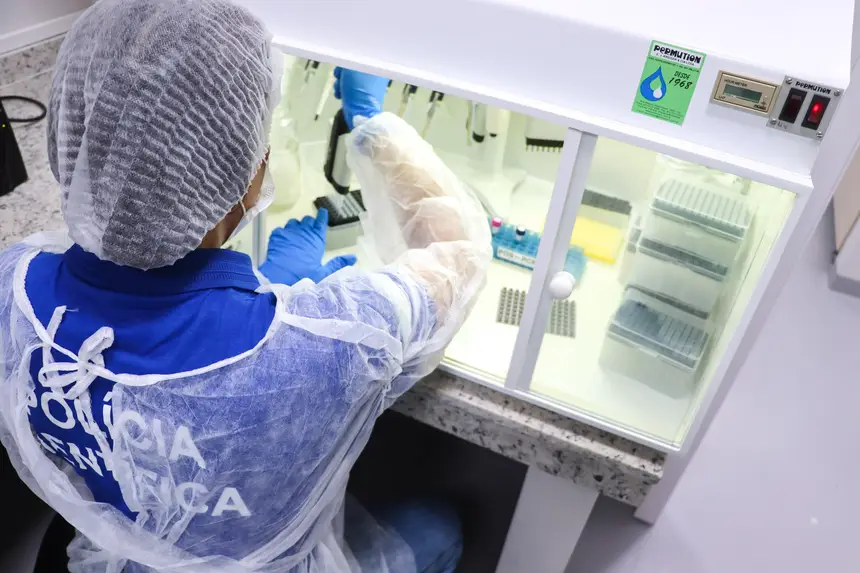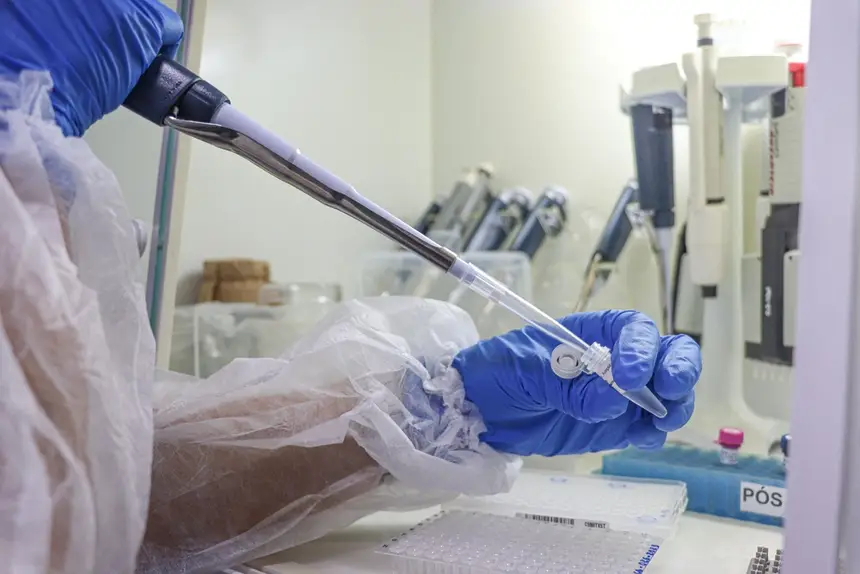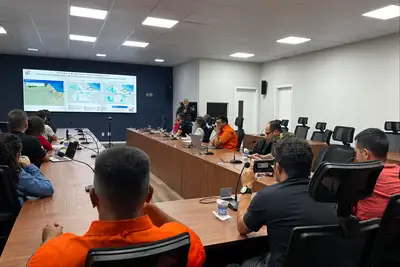Forensic Genetics Laboratory of the Scientific Police uses DNA to solve crimes
This Friday (25) marks the celebration of the discovery of the three-dimensional structure that revolutionized genetics and biology, and is the basis for studies in various fields

This Friday (25), World DNA Day, the Scientific Police of Pará (PCEPA) highlights the valuable contribution that the discovery of DNA makes to the production of reports that assist in solving criminal cases. The Forensic Genetics Laboratory of PCEPA is certified, awarded, and processes DNA samples daily.
"DNA is our genetic material and it serves as our identity. In our genetic material, we have markings like fingerprints, so it has become a way to identify us. Except for twins, each individual is unique," explains the criminal expert and manager of the Forensic Genetics Laboratory of PCEPA, Elzemar Rodrigues.
The expert also emphasizes that the analysis of the DNA molecule assists the Scientific Police in identifying perpetrators of violent crimes, particularly sexual crimes, criminal paternity in cases of rape and incest.
It also aids in identifying criminal maternity in cases of suspected infanticide and kidnapping, in identifying bodies without identification documents or claiming relatives, in cases where the body is charred, and also in feeding the database of genetic profiles, with the profile of convicted individuals of heinous and serious crimes against persons.
"It is a comparative examination, just like fingerprints; we need another DNA to compare. So we analyze and say whether the DNA found at the crime scene belongs to the person or not," she shares.
DNA Laboratory of the Scientific Police has 17 years of service to Social Justice
The DNA Laboratory of PCEPA was created in 2008 and has stood out over these 17 years for its efficient and serious work in the daily pursuit of justice.

"For the Laboratory to start operating, it underwent a rigorous evaluation process. We had to meet certain requirements. The structure had to follow an international standard for how the rooms are arranged, to prevent contamination, the qualification of professionals, the experts needed to have issued a minimum number of reports. And from there, with the evaluation done by the National Secretariat of Public Security (Senasp), which certified that the State had the conditions to have the laboratory, it was created," says the manager of the Forensic Genetics Laboratory of PCEPA, Elzemar Rodrigues.
Once created and operational, the laboratory must undergo annual proficiency tests, which ensure the quality of the service offered.
"Random forensic samples are sent to the laboratory, which we do not know what they are, and we have to process these samples, send the results, and the results must be identical to the exercise. Over all these years, we have successfully fulfilled all the samples they have sent," she proudly states.
National Genetic Profiles Database - Established by Decree 7.950/2013, the BNPG was created to assist in the identification of missing persons and in the investigation of crimes, including sexual crimes. With the implementation of this integration system, the forensic genetics laboratories in the country were structured and interconnected. The Laboratory of the Scientific Police of Pará is part of the network and is recognized within the program.
"In 2010, we received the Genetic Profiles Database, and in the first few years, we became the fourth State that inserted the most profiles. And with that, PCEPA gained some privileges and received some equipment as a result. For two consecutive years, we also achieved third place in the insertion of profiles of convicts," she celebrates.
The goal of inserting profiles of detainees is to send information to the National Genetic Profiles Database, so that comparisons can be made between the DNA of this group and the genetic traces found at crime scenes, in the search for material evidence that can contribute to the elucidation of crimes. DNA samples are collected using a swab (absorbent material attached to a stick), passed in the mouth to extract saliva. After meticulous technical work done by forensic assistants and criminal experts, the data is entered into the BNPG.










